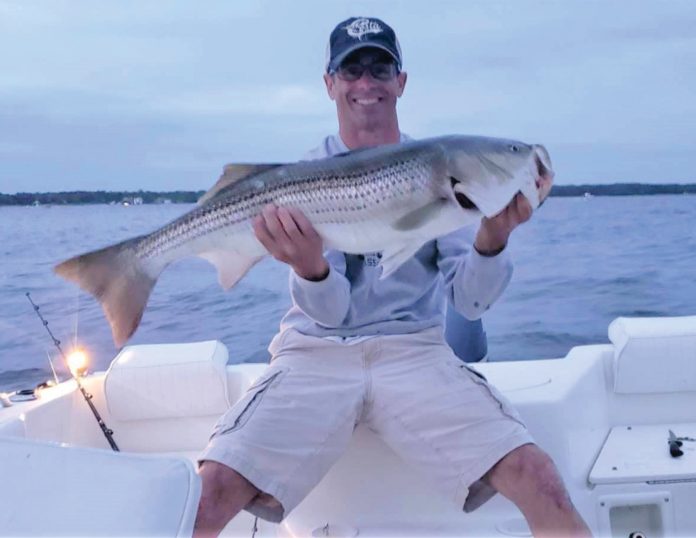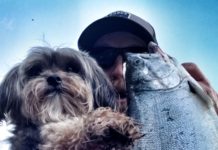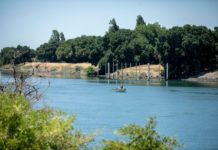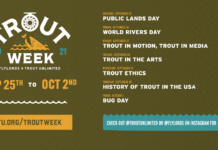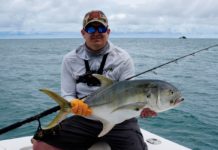By CAPT. DAVE MONTI The Bureau of Ocean Energy Management (BOEM) and the National Oceanic & Atmospheric Administration NOAA) have joined forces to address fish survey challenges presented by offshore wind farms. NOAA and fishermen have expressed concern about the ability to do fish surveys in wind farm areas.
The aim of this joint BOEM/NOAA program is to mitigate the impact of not doing surveys in areas that have traditionally been studied.
NOAA Fisheries’ scientific surveys are essential for setting quotas for commercial and recreational fishermen, as well as monitoring and assessment for recovery and conservation programs for protected species and essential fish habitat.
The program will address impacts from exclusion of NOAA Fisheries’ sampling platforms from the wind development area due to operational and safety limitations; impacts on the random-stratified statistical design that is the basis for scientific assessments, advice, and analyses; as well as alteration of benthic and pelagic habitats, and airspace in and around the wind energy development. A timeline for initial actions will be developed as part of the program.
At a University of Rhode Island Sea Grant Baird Symposium session last year, Andrew Gil, principal scientist at the Centre for Environment, Fisheries and Aquaculture Science in the United Kingdom, said, “Fisheries surveys in the United Kingdom did not experience problems. Scientists worked around them, just like they compensate for weather (with a mitigation program). So, wind farms did not interfere with surveys in the United Kingdom.”
Survey challenges were mitigated in the United Kingdom and that is the aim of the BOEM/NOAA program.
In a press advisory NOAA said, “The program will evaluate existing survey designs, identify and develop new survey approaches. It will calibrate these new approaches to existing surveys, develop interim survey indices, and conduct monitoring efforts. This will fill regional scientific survey data needs over the life of offshore wind operations.”
Information and outcomes from these efforts will be shared with the public, industry, academia, and state and federal partners to ensure an open and transparent process.
Help plan a healthier Bay
If you live, work or play in the Narragansett Bay region, you can help shape the next decade of planning for a healthier Narragansett Bay region by taking a quick survey.
Every ten years, the Narragansett Bay Estuary Program (NBEP), a conservation nonprofit, brings together folks across Massachusetts, Rhode Island, and Connecticut to create a new 10-year plan for the region.
If you live, work, or play in the Narragansett Bay region, fill out a brief online survey and your input will be used to help develop the NBEP’s next plan, Vision 2032. Surveys are needed from those in the 113 cities and towns that lie in the Narragansett Bay region.
Your voice can help attract funding and support for work in your area. Your input is completely anonymous to protect your privacy.
Vision 2032 is a growing partnership from across Rhode Island, Massachusetts, and Connecticut that is working toward a shared vision for water, wildlife and habitat, and quality of life in the Narragansett Bay region over the next decade. To learn more about Vision 2032, check out vision2032.org. Take the Survey (English/Spanish): https://vision2032.org/get-involved/individual-input-form/
Where’s the bite?
Striped bass/bluefish.
Dave Henault of Ocean State Tackle, Providence, said, “The bite has slowed a bit in the East Passage. We have had so much Atlantic menhaden around that the striped bass are stuffed. What seems to be working are small pieces or chucks of poggies.” Elisa Cahill of Snug Harbor Marina, South Kingstown said, “The striped bass bite was outstanding at the Southwest side of Block Island this week. Bass were on the surface with anglers using top water lures. The Island and is loaded with sand eels so umbrella rigs that mimic sand eels are working too.” Expert Rhode Island saltwater fly fisher and guide Ed Lombardo, said, “We fished the Narrow River (Narragansett) last week three times. All three days produced some nice bass, anywhere from 10″ to 24” and many were fresh from the ocean with sea lice attached to them. Fished the incoming tide on Sunday, this time of the year we find that the cooler sea water brings in the bass. This year so far the bait has been almost nonexistent. We are not seeing much bait at all, hopefully this will change. The bass come in looking for bait and do not stay long due to the lack of bait. So we wait for a fresh school of bass to come into the river. My shrimp fly in dark brown has been working very well. I find that during June dark brown flies work very well.”
Scup/black sea bass/fluke.
The scup and black sea bass bite continues to be good in Buzzards Bay. Although open in Massachusetts, the black sea bass season does not open until June 24 in Rhode Island. “Timing is everything. Things were good for fluke anglers this week if conditions were right … wind and tide in line. With the right conditions areas that produced nice keeper fluke include the East Grounds (three miles east of Block Island) as well as areas off South County beaches including Nebraska Shoals and The Five Cottages. Anglers were finding keep fluke in 30 to 50 feet of water.” Angler Mark Jacobs said, “We decided to fish the west side of Block Island this weekend to get out of the east wind. Tide from the Race was ebbing and with the NE wind, we made short drifts from 50-56 feet for about 90 minutes, boating a keeper and several shorts on each. I used homemade 3-way rigs with an 8 oz. bean buck tail (needed to hold) and three foot long spinner teaser with long squid strips. It may be hard to reproduce the wind and tide conditions, given our prevailing winds. Caught five keepers, four over 22 inches, with the 27-incher being my personal best for quality.”
Squeteague (weakfish).
The squeteague bite continues to be strong in Greenwich Bay and off Warwick Neck. Dave Henault of Ocean State said, “Last week the squeteague bite was good in the West Passage from Green River to Calf Pasture Point in North Kingstown.”
Freshwater
fishing in ponds recently stocked with trout is still good. Visit http://www.dem.ri.gov/programs/fish-wildlife/freshwater-fisheries/troutwaters.php for a complete list of trout stocked ponds in RI. In Massachusetts visit www.mass.gov/freshwater-fishing-information.
Dave Monti holds a captain’s master license and charter fishing license. He serves on a variety of boards and commissions and has a consulting business focusing on clean oceans, habitat preservation, conservation, renewable energy, and fisheries related issues and clients. Forward fishing news and photos to dmontifish@verison.net or visit www.noflukefishing.com.
Credit: Source link

















